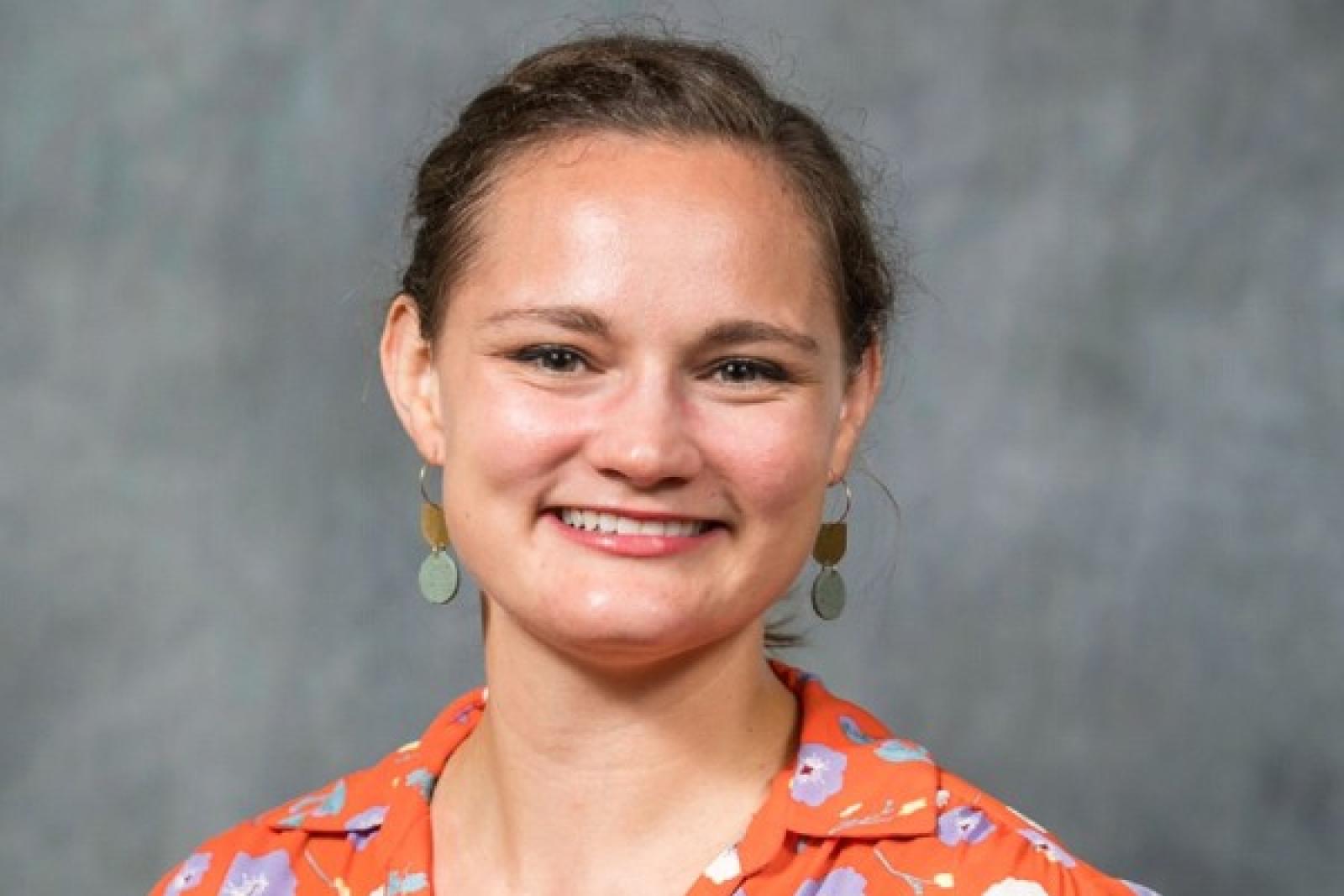Becca Lahrman receives American College of Clinical Pharmacy Community-based PRN 2023 Outstanding Paper Award

Becca Lahrman, PharmD, MS, BCACP, assistant professor – clinical of pharmacy practice and science at The Ohio State University College of Pharmacy, was selected to receive the 2023 American College of Clinical Pharmacy (ACCP) Community-Based Practice Research Network (PRN) Outstanding Paper Award.
The award recognizes her paper, “Pharmacists’ facilitators and barriers to implementing and billing for patient care services: Interviews from the Ohio Medicaid Project,” which was published in the Journal of the American Pharmacists Association in April. Co-authors include Young Eun Shin, PharmD, MS; Brianne Porter, PharmD, MS; Stuart Beatty, PharmD, BCACP; and Ana L. Hincapie, PhD.
As the role of community pharmacists expands, more states are beginning to officially recognize pharmacists as health care providers. Despite 37 states recognizing pharmacists as providers, including Ohio, there is still no federal recognition.
The status of “health care provider” offers many benefits, such as more accessible care for patients, but the lack of federal recognition means that there is little standardization of coverage and billing for medical services that some pharmacists can now offer.
The paper investigates the sustainability and consistency of billing processes that Ohio pharmacists employ when offering clinical services. In completing this study, the authors hoped not only to remedy the gap in data on billing services in Ohio, but also to share the findings as guidance on how providers are finding success among these changes to the community pharmacy landscape.
This learning process is critical in the face of this expanding field, so we should continue to extend grace to our ourselves.
Despite the very real challenges that still exist as Ohio navigates the change in provider status, there have been plenty of lessons learned along the way.
“We know many people have likely overcome those barriers of reimbursement,” Dr. Lahrman said. “We wanted to document the Ohio process for other states looking to implement more sustainable services for their Medicaid patients.” “This learning process is critical in the face of this expanding field, so we should continue to extend grace to our ourselves.”
Together, Drs. Lahrman and Shin analyzed qualitative data gathered from providers at 11 sites of care. While the data gathered in this study was largely novel, Dr. Lahrman noted the familiarity of many of the findings.
“At my own practice site, I was able to see how difficult it was to identify patients eligible for services,” Dr. Lahrman said. “I was also able to see how much impact I could have on patients by being able to set aside time to talk with them about their medications, knowing that the conversation was a reimbursable service since I am usually only paid for dispensing medication.”
The study’s findings highlighted room for growth in payor and pharmacist collaboration. Among the benefits found in pharmacies expanding their health care offerings were “communication between payors and pharmacists, communication between pharmacist and care teams, and the perceived value of the service.”
The study also concluded that barriers could be overcome through “system integration, payor rule clarity, and patient eligibility and access.”
“When trying new services, everyone expects to encounter barriers that need to be overcome, but I don’t think we realize these can quickly become our facilitators,” Dr. Lahrman said. “It was interesting to see pharmacists describe something as a barrier in the beginning of this study and then reflect upon it as a facilitator at the end.”
As a community pharmacist at Shrivers Pharmacy and Wellness in Athens, Dr. Lahrman is passionate about opportunities to cultivate pharmacist-patient relationships. By increasing pharmacists’ capabilities of providing health care services, those connections have a lot of room to grow.
“While I love ensuring my patients have access to medications, I have a more significant role in their life by reinforcing the conversations they have with their providers, encouraging them to advocate for themselves and educating them on their medications,” she said. “Currently, that role is undervalued in our health care system, but it is needed by so many patients.”
Dr. Lahrman isn’t alone. The ACCP Community-Practice PRN that she belongs to is filled with like-minded individuals. Looking forward, Dr. Lahrman and her co-authors are optimistic about the continuing transformation of barriers into facilitators and learning opportunities.
“Community pharmacy is a difficult path right now with workforce and payment issues, but people still want to build their community and know who is taking care of them,” she said. “Keeping pharmacies in the community will require us to continue to expand our services and meet patients where they are.”
Dr. Lahrman will present the paper and receive the award at the ACCP National Meeting this month in Dallas.